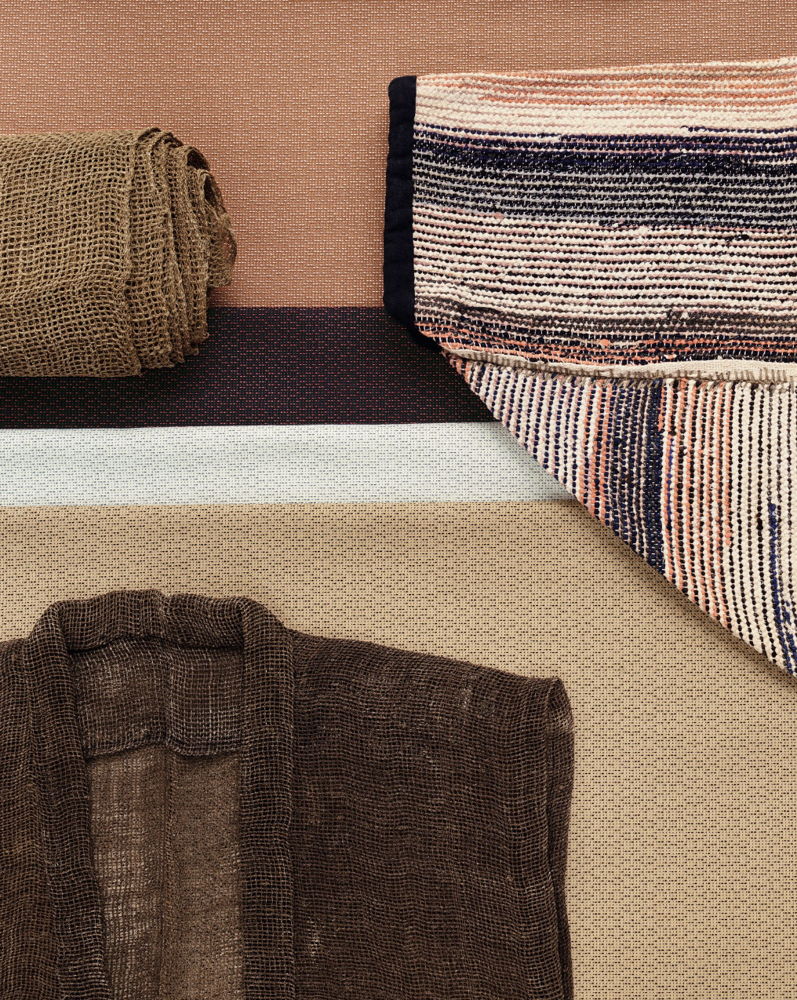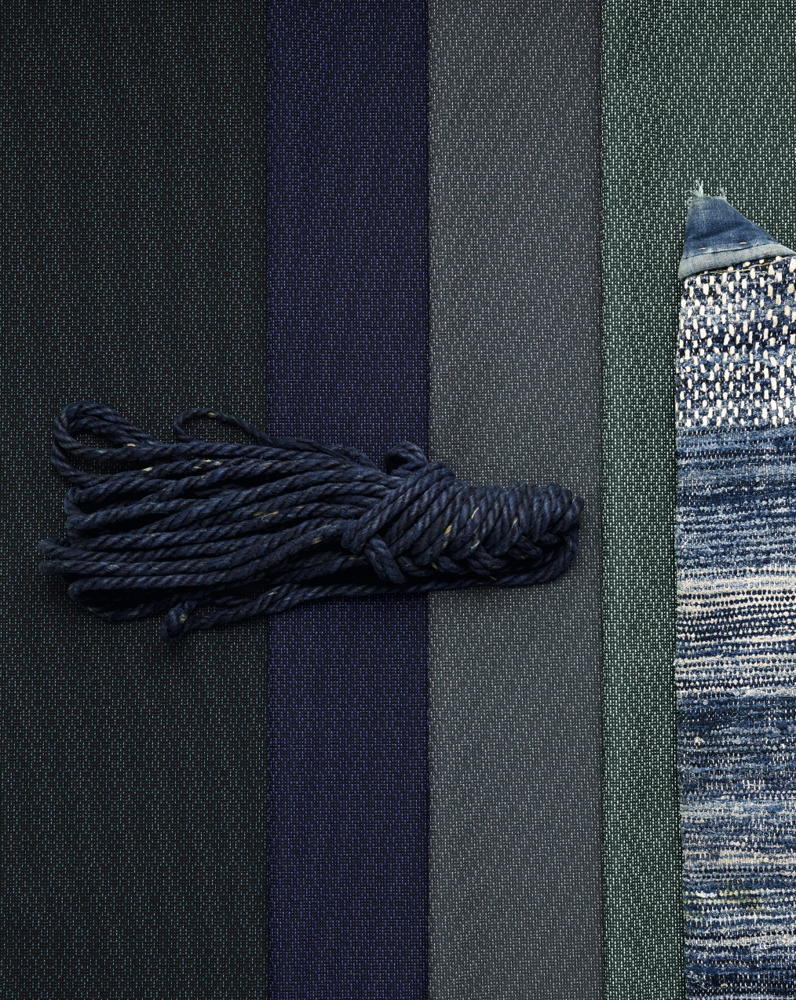Ame by Teruhiro Yanagihara
Kvadrat is launching its first textile-to-textile recycled polyester upholstery textile Ame by Teruhiro Yanagihara with the installation Loom of Time, first presented during Fulton Market Design Days in June 2024.
September 19, 2024

Ame is the first textile-to-textile project from Kvadrat Innovation Lab, woven with recycled polyester made entirely from textile waste. Featuring a design inspired by Sashiko, a traditional Japanese mending technique, Ame embodies longevity and mindful reuse in its construction and aesthetic. Kvadrat has collaborated with its partners across the entire supply chain – from raw material to yarn supplier – to close the loop within the textile lifecycle, exemplifying the longstanding commitment to pushing the boundaries of material innovation and sustainability within textile design.
It starts with the yarn, where textile waste is first collected, sorted, and shredded, before being recycled using a depolymerisation technology – a type of chemical recycling technology which uses heat and chemicals to break down polymers to monomers. Then it is purified from any chemicals and dyes, repolymerised into polyester chips and spun into yarn. Repolymerisation is the process of re-building the recycled monomers into new polymer chains. The textile waste used is a mix of post-industrial and post-consumer textile waste, with differing percentages from production to production due to availability.
Lea Nordström, Kvadrat Innovation Lab Manager: “To innovate we must disrupt the way we source raw materials and create textiles. Material diversity is key at Kvadrat, and we work with a wide range of recycled raw materials, but we believe that the future will be circular, and so for Ame, we developed our first yarn made from polyester textile waste.“
Ame features a rhythmic micro pattern, imitating Sashiko hand-stitching, a form of functional embroidery used in Japan to repair worn textiles.This pattern is further emphasised by the use of two contrasting colours for the stitching thread and the base.
Drawing upon Teruhiro Yanagihara’s wider research into the textiles and techniques that travelled the Silk Road, and their impact on traditional Japanese textiles, the poetic palette for Ame specifically references the art of “Kasane no Irome” – “Colours of Layers”. During the Heian era, members of the imperial court combined different coloured layers of kimono to reflect their rank and the changing hues of the seasons.
Teruhiro Yanagihara: “I felt that the Japanese philosophy of not throwing away items and instead using them beautifully for a long time was in line with the characteristics of Ame. I focused on layering colours and adapting the delicate precision of Sashiko to modern weaving techniques.”
NOTES FOR THE EDITORS
About Teruhiro Yanagihara
Japanese designer Teruhiro Yanagihara launched his studio in 2002. Inspired by the idea of transcending conventional creative paradigms, and moved by the intuitive warmth of Scandinavian living, Teruhiro aims to elevate the human experiences of the quotidian through emotional dialogues and timeless attention to detail. His clients include Kvadrat, 1616/Arita Japan, Karimoku New Standard, Skagerak, Offecct, and Kimura Glass, among others, and his works are part of the permanent collections at the National Centre for fine Arts in Paris and the Stedelijk Museum in Amsterdam. Teruhiro also runs ‘Vague’ by Teruhiro Yanagihara Studio (TYS) – housed in historic structures in Kobe and Arles – which connects the creative dots between Japan and the rest of the world. ‘Vague’, which is French for ‘wave’, is the spatial expression of TYS design philosophies and is an in-between space for creativity and a laboratory for experimental ideas. Flowing with the organic momentum of a wave, it is a home for a fluid spectrum of collaborative projects, such as exhibitions, food research and residencies
About Kvadrat Innovation Lab
Kvadrat Innovation Lab sits at the cutting edge of Kvadrat’s longstanding commitment to push the boundaries of textile design and material exploration. Set up as an incubator, the team of engineers work on pioneering research projects in collaboration with progressive universities, start-ups, and companies. They explore potential fibres, yarns, materials, and production processes which could support Kvadrat’s transition towards more circular products and more sustainable production. By pushing continuous innovation across the value chain, it aims to increase the level of sustainability across all products in Kvadrat’s portfolio.

